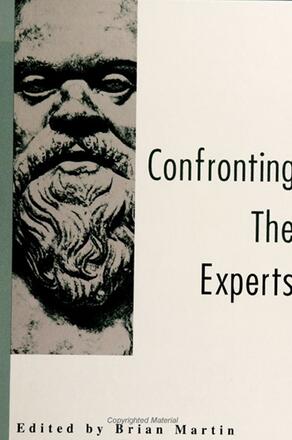
Confronting the Experts
Alternative formats available from:
These six personal case histories of challenges to establishment experts tell why they questioned conventional wisdom, what methods they used, how they dealt with the experts' response, and what lessons they learned.
Description
Confronting the Experts brings together six personal case histories of challenges to establishment experts. The authors tell why they questioned conventional wisdom, what methods they used, how they dealt with the experts' response, and what lessons they learned. Because the book shows how powerful groups can get their way by gaining the support of intellectual authorities and also how these authorities can be challenged, it provides insights into the issues of power, dissent, and social change.
Included are Sharon Beder's research on sewage and how it helped to undermine the credibility of the Sydney Water Board; Mark Diesendorf's scientific and social critique of fluoridation; Edward Herman's exposition of the flaws in the establishment perspective on terrorism; Harold Hillman's questioning of the validity of standard methods used in biology, such as subcellular fractionation and electron microscopy; Michael Mallory and Gordon Moran's challenge to the orthodox interpretation of a famous painting in Siena, Italy; and Dhirendra Sharma's confrontation with India's nuclear establishment.
Brian Martin is Senior Lecturer in the Department of Science and Technology Studies at the University of Wollongong, Australia. He is the author of Scientific Knowledge in Controversy: The Social Dynamics of the Fluoridation Debate also published by SUNY Press, The Bias of Science; Uprooting War; Social Defence, Social Change; and coeditor of Intellectual Suppression: Australian Case Histories, Analysis and Responses.
Reviews
"In the tradition of C. Wright Mills, this book is a major contribution to a theory of confronting experts. It's a courageous book, as some authors' stories point out. Critics, whistle blowers and victims of a variety of forms of abuse are often not welcome. But we need to take these cases seriously. These first-person accounts provide strong statements. We can find such cases, usually in conversations with colleagues or in not-so-available newsletters. But these authors are addressing matters of major policy relevance: the reasons behind the positions of experts on such issues need to be more available than they generally are. This book is a contribution to that end. " — Harry R. Potter, Purdue University